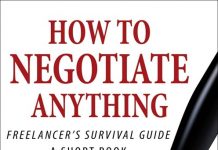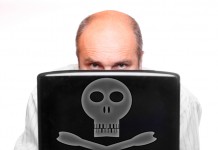 I pirated a book last night. I didn’t mean to, per se, and I know I have been upfront in the past about respecting author’s work and paying for the media I consume. So, how did I wind up downloading an illicit copy of something? And why should author Kathy Hester not be at all concerned?
I pirated a book last night. I didn’t mean to, per se, and I know I have been upfront in the past about respecting author’s work and paying for the media I consume. So, how did I wind up downloading an illicit copy of something? And why should author Kathy Hester not be at all concerned?
Here is what happened. I was on my way home and waiting for a text from the Beloved in reply to my ‘do you need anything at the grocery store while I am at the plaza’ message, so I thought I would kill some time at the Indigo Books while I was waiting. And there, I found the cookbook of my dreams.
Or, I should clarify the *possible* cookbook of my dreams. I have an odd history with this genre of book. I am not a great cook, but I want to be, and I keep searching for the one book that’s going to make it all come together for me. This book was called ‘[easyazon-link asin=”B00EIIDMSM” locale=”us”]Vegan Slow Cooking for Two or Just for You[/easyazon-link] by Kathy Hester, and a quick glance showed me it might just be The One. The recipes were simple, healthy-looking and beautifully photographed. I liked the idea that a few minutes prep while I was packing the lunches would net a dinner waiting for me at night, with just enough left over for the next day’s lunch. I liked that I could cook this stuff just for me and not worry about wasting the groceries if my much-pickier Beloved did not want to partake.
But I hesitated because, the truth is, I have dozens of cookbooks at home which I thought would be The One and they were not. I didn’t want to bring home another cluttery thing and have it not work out for me. And then the Beloved texted me back and I went to the grocery store and went about my night. And…I was still thinking about the book later.
So I decided that what I would do is try the book before I bought it. I would find, and cook, one recipe. And if it worked out for me, I would go back to Indigo and buy the book— I still prefer paper for cookbooks, and I knew I would not be buying a Kindle version. But the advantage of the Kindle version was the sample, so I did go to Amazon to check it out. Unfortunately found the front few chapters with prefatory information on slow-cooker usage, and ‘core’ recipes for stuff like spice mixes and soup stock. That wouldn’t really give me a chance to try out actual cooking from the book.
So, step two—I went in search of blog reviews. These often include recipe samples for this type of book. Alas, they did not this time. I found several liberally illustrated photographs of beautiful stuff, but no hard list of ingredients and cooking times. I just wanted one appealing-sounding recipe to try. How hard could it be?
And then, on the second page of search results, there it was: a link to an epub copy of the book from a known-to-me illicit site. I downloaded it without hesitation. I figured it would be okay because I knew I was not going to buy a digital copy anyway. If I previewed this book and liked it, I would be going back to buy the paper copy. And if I previewed and didn’t like it, I wasn’t going to buy it either. So the author would either gain a paper sale out of this, or be where she started with me, which was obscure, unknown and un-purchased.
I have bookmarked two recipes and I will try whichever one I get the ingredients for first. And Kathy Hester, I promise you, if I like the recipes, I will buy the book for real.
So…did I do a bad thing?

































Not necessarily. I think the key is to live up to the *moral commitment* to pay for the work if you want to use it. A stickier question would be, what about a book that you bought in paper form, that you want to reread in e- and is not available? Do you:
(a) pirate it without remorse
(b) pirate it and commit to purchasing it electronically the moment it is available to you
(c) dig up your paper copy or buy a new one – it’s not available electronically, so don’t go looking for trouble
Not necessarily an easy decision – what does your conscience tell you ?
You demonstrated how copyright law and the business model of publishing have been left behind by technology and need to be updated. You infringed on her copyright – you could argue that your actions were fair use because they didn’t harm the market for the book, but if one accepts that argument, then any copyright infringement could be explained away by “but I wasn’t going to buy it anyway”.
But I don’t think you did anything morally wrong. And I hope the recipe is great and you buy the cookbook.
Personally I go for option b and add it to my calibre library with a tag reminding me to buy it if or when it comes out. I did that with the Harry Potter books and then bought them the day they got released.
@Simon, I like that one. Do you review your tags periodically? How do you keep track of when it comes out? I’ve not had the situation come up in a while, but if it does, that’s a good way to deal with it.
I agree with the Alain C. I have been reading a lot about piracy (lately). I have come to the conclusion and agree with Cory Doctorow on this subject (though not every subject that he stands for). I feel people would pay for a copy, if they had the ability to try it (and like it), rather than just pirate a copy. Also, when people (like Cory Doctorow) give their books for free, then if you want to pay for them, once you like them, then he wins too. He gains a loyal fan (which I am with his writings), and though he may not ever get the money for the lost purchases of the free books that I tried to see if I liked them…money can be given to libraries so that others can gain the ability to read his books in print. Overall, if people have the ability to pay for the book, most will do it. This is another reason why I am against DRM, too.
So, as long as you are true to you, then I believe that everyone wins.
I use a mixture of methods, I generally check through them just after payday and I have the non ebooks in luzme and check if any prices have appeared next to them 🙂
Any books that have eBook versions I like get put into Luzme too and reviewed after a while to see if they’ve come down in price or I’ve changed my mind 🙂
I’ve done similar with books I can’t even find in any digital form and get scanned.
I dunno…however in the game software world I definitely came around to the mindset that a certain amount of piracy was unavoidable, and in effect was actually a sort of marketing cost that paid divideds in spreading a product popularity. I.e. the more piracy the more people that can potentially recommend it to their less-larcenous friends – which in turns leads to more sales in the long-run.
The author mentioned in your article has potentially lost the net of one sale (if you decide not to purchase it), BUT could potentially gain X number of additional sales from the publicity of you mentioning it in your article (as a certain percentage of people that read it will check it out further, maybe via Amazon & their reviews, and then a percentage of those will actually buy it).
Did you think about checking your local public library for a copy of the book? Most libraries take requests for titles that people are interested in, or, if they don’t want to purchase it, they’ll borrow it from another library for you. And if you specifically wanted it for an e-reader, most libraries take requests for e-books, too.
This would mean you wouldn’t have to download illicit files, thus preventing you from getting into any legal trouble at a future date.
Libraries are a good thing, yayy for Overdrive, but ….
Where are Nicholas Meyer, George C. Chesbro, Clifford Simak, etc. etc. etc. ?
Chesbro, in particular, is well deserving of an electronic revival, this fellow could take an absolutely nonsensical premise and turn it into a yarn you simply couldn’t put down.
To make the point moot: if you look at the Amazon page, there is a major difference between the amount of sample provided in the Kindle version versus the print version. The latter includes a rather amazing number of the recipes, certainly enough to test before buying the book. (And thanks for writing this piece because I, too, will probably be purchasing!) This strikes me as something that the publisher needs to address–if they’re willing to put up such a big chunk for the print version, they should put up a similar amount for the Kindle version, especially for something like a cook book where you want to be sure the author can at least write a comprehensible recipe before forking out, as it were.
I am afraid that I am going to have to disagree with most of the people here and say “Yes, you did a (little) bad thing”.
The simple fact is that there was a way to preview the book (you even pointed it out in your article) by downloading the sample from Amazon. But your justification for not sticking with this route was “but the sample didn’t show the recipes I wanted” and so you downloaded a pirated copy.
This is not your call. The author/publisher/distributor decided that this was the sample that they were going to distribute for people to look at when previewing the book. If they choose to show the “wrong” recipes, then that is their problem and just plain bad marketing at least as far as you are concerned, a dedicated stock/sauce freak may feel otherwise.
I know you have every intention of buying the book if you like the recipes (as you should), but how many of the recipes should you be allowed to try before you make that decision? What if the first two you try didn’t quite cut it, but that one on the next page could be the decider one way or the other? So you try that one too. And the next. And the next.
You are taking what the author obviously feels is the value in this book and using it. If you decide that you don’t like the book and don’t pay for it, how do you “get rid” of this value? You can’t easily forget the recipe you used, but you could easily find yourself using that recipe as the basis for a dish you like more. How would the author be compensated for that?
As I said at the start, obviously most people disagree, so it is possible my opinion is the voice in the wilderness here 🙂
I find your argument (as well as the arguments of the other commenters) a bit specious. Copyright and morality are neither synergies nor distantly related relatives. Morality is what religious indoctrination has imposed on humanity as the difference between right and wrong, moral and immoral. We consider it immoral to murder because we have been taught to accept the commandment, not because murder is so inherently evil that from the moment of conception we already know its immorality. Morals are social compacts.
Copyright, on the other hand, is a defined legal relationship that has been imposed upon ourselves as part of the social compact. Today piracy violates copyright law, tomorrow it is an exception to the copyright law. Legal relationships change at whim, supposedly morals do not.
So, did you do something wrong. Certainly. You are now a pirate and the fact that you MIGHT buy the book some day does not alter your status as a pirate. Perhaps inadvertence could be an excuse along the lines of fair use, but you knew in advance that it was a pirate copy and that the website was a pirate site. You made a conscious decision to steal the author’s book.
If you were sitting on a jury and the bank robber said that he was going to eventually pay back the bank with interest assuming and that the bank suffered no harm because it was insured, would you vote not guilty? Based on your own actions, you should, but that would simply bring chaos to the social compact if that was how we always made decisions.
Don’t get me wrong. I’m not suggesting that copyright laws are appropriate as they stand or that publishers and authors do not need to be a bit more flexible, but you asked the stark question: Did you do wrong? To that the unequivocal answer is yes. That you so acted diminishes your persuasion abilities on matters of piracy. I will always, now, equate Joanna Cabot with supporting piracy — by action if not by word. Any future antipiracy messages bearing your name will be viewed as tongue-in-cheek satire, now that I know you think it is OK if it benefits you.
Oh, and as usual with all the me-me-me… but who cares. You just took it because you could.
On the other hand, I wasn’t even asked to pay for this article. So where’s the future?
With regard to the utility of the sample, many eBook samples are created automatically. It’s a formula-driven decision as opposed to a thoughtful act by the author. In some cases, the author may have the option to create the sample.
A sample created by formula (e.g. n% of total number of pages) might be just fine for those authors who set the hook early on but if this is not how your work is best assessed giving some thought and effort to a different kind of sample might be in order, especially if your work is digital only.
In reply to Leslie’s observation, “This strikes me as something that the publisher needs to address–if they’re willing to put up such a big chunk for the print version, they should put up a similar amount for the Kindle version”
Unfortunately, Amazon doesn’t allow any publisher to choose how much content is provided in the Kindle sample. It automatically cuts off at about the 10% point (or somewhere thereabouts). As an author myself, this is pretty disappointing, as I’d often like to provide longer samples but can’t. But I find it particularly frustrating as a customer, especially when shopping for computer reference books.
Back when there was a bookstore near me, I could go in and flip through an expensive book to any relevant section to see whether it would meet my needs and be worth the $40 – $60 purchase price. The county library system’s selection is poor and lags a couple years behind, so it’s rare to find something I’m looking for available at my branch or through interlibrary loan. If it weren’t for Safari Books Online, an excellent subscription service for technology books, I’d probably end up pirating everything prior to purchase.
If there’s something I can’t find through Safari or the library though, and the available samples let me down, I do pirate occasionally in order to check out a book I’m thinking of purchasing. After a few minutes looking through what I’ve downloaded, if I find it worth keeping I’ll buy a copy. Am I breaking the law? Yep. Do I feel any remorse? Nope. I could take advantage of Amazon’s return policy to buy and then return books that don’t meet my needs, but a friend of mine who did so had his account suspended after only three returns in a year (despite many more books kept). If I only used my Amazon account for purchases, I’d risk it, but since I unwisely set up my publishing account and some other Amazon services using the same login tied to my Kindle, I’d have too much to lose. I’d rather take my chances with the law.
I think you are feeling guilty that you downloaded a book without paying for it and are looking for validation in a public forum to offset it. Th e more people saying “no big deal” will only encourage you to make it habitual.
Well, Michael, I don’t have any ‘guilt’ actually. I don’t find cookbooks usable in e-form, so I will either buy the paper and delete it, or not buy the paper and delete it. Either way, this is serving the function of a sample.
Rich, I don’t think the bank-robber analogy applies here. There IS a functional difference between a physical good and an electronic one; ‘interpretation’ notwithstanding, this is a fact. When the bank robber takes the money, someone else physically doesn’t have it. This is not true with an ebook file. The morality of what this entails is debatable, but the physical reality is what it is.
My ‘point’ in writing the article was merely to point out that there are shades of grey on the spectrum here. It’s not’ you are an evil pirate and you are out to screw authors’ or ‘you are a pure angel who respects the author’s work.’ There are reasons other than mean-spirited ‘piracy’ why someone might download an ebook file. As I said, I have no intention whatsoever of screwing over this author. Either her book is not my thing and therefore I would not have bought it anyway, or her book IS my thing, and I will purchase the paper copy. That, to me, is a very different situation from putting 10,000 ebooks up on a torrent site just because that’s possible.